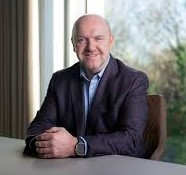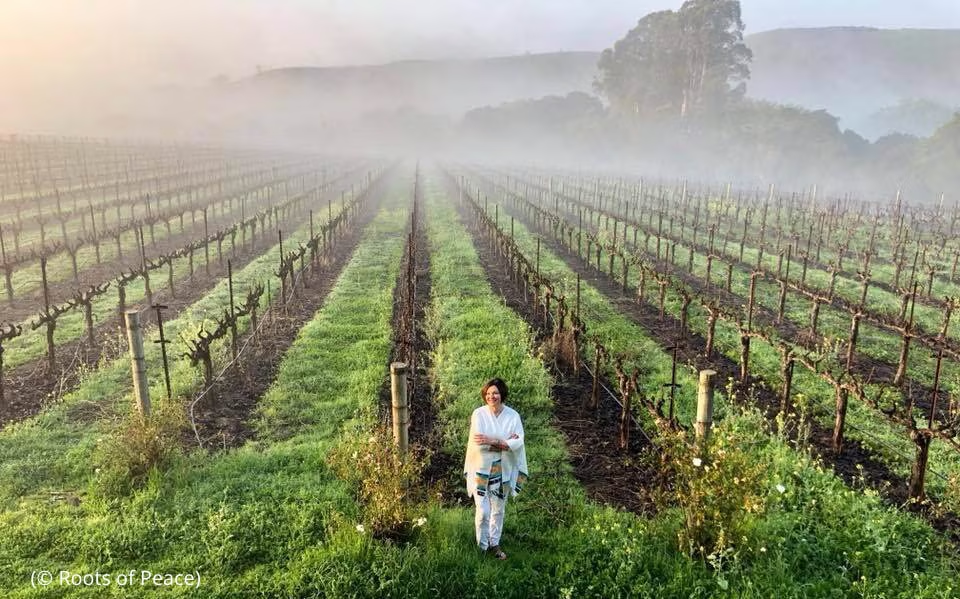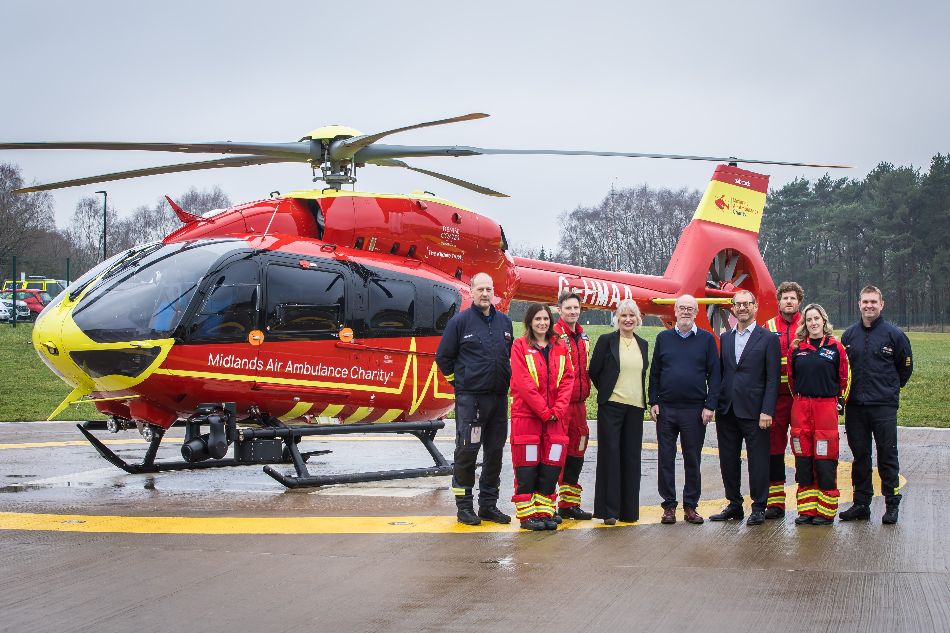Heidi Kühn walked through her first minefield, in Dragalić, Croatia, in 2000. Workers there asked her blood type in case she stepped on a land mine.
“That was such a defining moment,” Kühn said. “I was with a friend and we looked at each other in the eye and we were like, ‘What have we gotten ourselves into?’ And they suited me up.” Kühn, a California native, has earned international recognition for Roots of Peace, the non-profit she founded in 1997 that transforms heavily mined areas into sustainable farmland. Or as Kühn puts it, she’s turning mines to vines.
On May 11, Kühn received the World Food Prize, an international honour that recognizes individuals who help advance food quality and quantity around the world. “I’m just humbled and honoured, and I still think I’m in a dream,” Kühn said.
“As a mother, to be able to serve as an American to heal the wounds of war, it is my great honour to accept it.” Roots of Peace partners with mine removal groups around the world, including the Croatian Mine Action Centre, HALO Trust and Mines Advisory Group, to remove munitions.
Once that’s done, the group goes in with shovels and trains rural farmers to grow and sell high-value crops. USAID and the U.N. Development Programme have given financial aid to Roots of Peace projects.
The non-profit has facilitated the removal of more than 100,000 land mines and pieces of unexploded ordnance around the world. The farmland made possible by the cleared explosives has given food security to locals in Afghanistan, Angola, Bosnia-Herzegovina, Cambodia, Croatia, Guatemala, Iraq and Vietnam.
The non-profit has helped export to international markets nearly 160,000 metric tons of fruits, nuts and spices valued at more than $350 million, supporting more than 1 million farmers and families. Kühn remembers feeling elated after detonating her first land mine in Croatia, but those feelings gave way to sorrow because there were still so many left.
She wants now to turn her attention to Ukraine, where it was estimated that there are land mines over 174,000 square kilometres. It’s a section of land bigger than England, Wales and Northern Ireland combined.
“The earth forgives us, the earth is bountiful, we’re feeding children,” Kühn said. “I can go to sleep at night and know there’s families I may never meet but through our efforts and our footsteps, we’ve had an impact on their day.”











